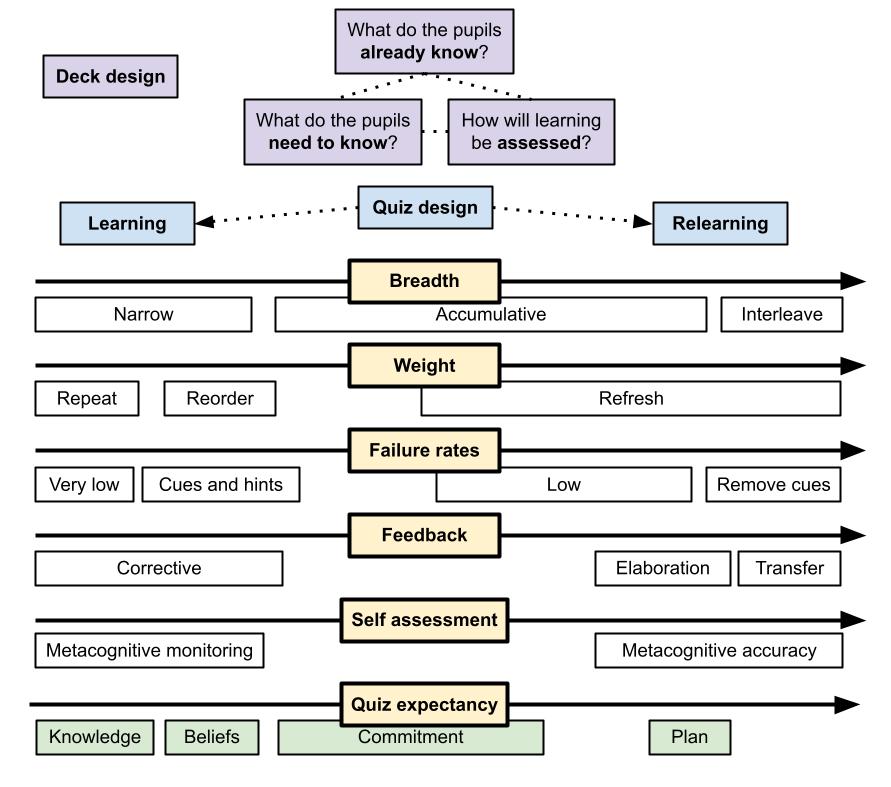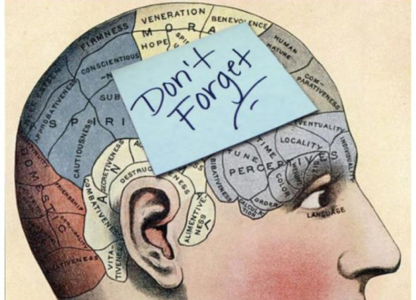Yesterday Paul Cline @PaulCline_psy asked an excellent question.
#Edutwitter Anyone recommend a good blog explaining the difference between general retrieval practice vs RP as a way to activate prior knowledge for a lesson. Want something clear to share with staff.
Paul Cline https://twitter.com/PaulCline_psy/status/1620756053649666048
I was curious as to how and why that question had been conceived. So I asked.
Interesting question – I’d be curious to know more.
Me
Hi Kristian, It’s come about from discussions with teachers about using quizzes as starters and the different purposes.
- So the difference between asking a set of ‘random‘ questions from across a range of topics (‘pure’ RP) vs asking questions which specifically relate to the material about to be taught (activation or priming).
- Both might require thinking about the types of Q differently, but I think there’s a tendency to conflate the two, or to assume that a set of Qs that includes both is fine (which it might be if done well) but might not have the benefit/impact that we might hope.
- Part of the issue might be the way we think about what we’re going to do in terms of feedback and the ‘data’ we get from a class ie how we go through the answers, the extent of corrective feedback provided, whether we need to address something now or revisit later, how important it is to know who/how many got something right etc.
Hope that makes sense?
Paul Cline
Thinking how fortunate his staff are, to have someone willing to go out and find answers to the carious questions they are posing, I attempted a swift answer between lessons. In reflection, the answer was a little fractured and a little rushed (to be expected). Hence I returned to it when I got home. Apologies for the structure of this post, however the body of the reply was sound, additions to the original reply are shown in bold.
For reference – I labelled to paragraphs post reply.
What and why we are retrieving – changes the mode
It is a valid question for sure. It would appear you are possibly asking 2 questions.
The first of those questions, also has 2 component parts. Both spacing and interleaving as component parts given the reference to “a range of topics”. I will add here, that interleaving itself is largely attributed to a spacing effect and more and is most effectively applied to secure knowledge, where the process or substantive knowledge can be discriminated. eg Apply strategy x or y or character x and y.
Spacing and interleaving benefits are also comorbid. The benefits “overlap,” or that the interleaving is itself a spacing effect.
Reply section 1: What – random questions. Why – checking for understanding (remembering / relearning).
‘Random’ questions – from across a range of topics. The pluralisation of topics is important as explained above.
Here retrieval is accessing maintained knowledge. (Depending on how well that knowledge was learnt in the first place, it will be either remembered or not.) Here the act of retrieval practice is highly beneficial – modifying the storage and retrieval strength. Time efficient. Use short presentation cycles (as little as a few seconds). Shorter retrieval latency. Confidence building where accessible. Informing where not, with teachers able to underline and encourage a deeper commitment and focus on the learning focus On feedback – always provide access to the correct response. Self-marking offer multiple dividends.
Covert responses (pupils thinking answers, producing answers) over overt responses (written responses) are equally valid – also more efficient.
These random question also lend themselves well to elaborative interrogation. See Enders et al. (2021: 102).
The importance of ‘thinking hard’ has been upheld by Rowland (2014), Adesope et al. (2017) and Yang et al. (2021).
Rarely is retrieval a waste of lesson time. Even unsuccessful retrieval attempts promote later learning. As peculiar as it sounds, attempting to retrieve a memory enhances subsequent learning even if the attempt is unsuccessful (Kornell et al., 2015).
These Topics can be interleaved where the content is suitable and similar (and accessible) for an added learning bonus — particularly where the pupils know their stuff.
ALWAYS provide feedback. Corrective feedback significantly increases learning gains (Rowland, 2014; Yang et al., 2021).
So your assertions are spot-on in para 3.
To add challenge – extend the spacing, change type of retrieval, more free recall. Add more difficulty to the question (lower the diagnosticity of the cue). Mismatch the retrieval mode from the taught mode. See Pepper and salt questions. Fewer hints. ALWAYS use feedback for test-enhanced learning.
Free recall*
Technically, ‘You need to decide how long you wish to remember something’ (Cepeda et al., 2008: 1101) to decide when to quiz it too.
Reply section 2: Activate prior knowledge (and potentiate subsequent learning)
On your point of reactivation, van Kesteren et al. (2018:4) reported that ‘reactivation of prior knowledge during learning of new information indeed results in stronger association of new learned information’.
Rarely are pupils learning anything discretely new.
On encoding / new knowledge. Lower failure rates (protect learner confidence) High diagnosticity cues. High precision. Use hints. Narrow focus. Shorten the spacing. Hold off on interleaving. Repeated retrieval to success x3, on three spaced exposures, is a good benchmark, and reorder questions. More recognition recall.
Reply section 3: Potentiating knowledge
I did not mention anything about potentiated learning in my first reply. Quizzing yet-to-be-taught material has both a memorial and metacognitive benefit. However, I do not believe you were asking about that.
Reply section 4: Assessment and corrective feedback
In all test-enhanced learning situations, have learner assess their own answers. Those students who corrected their own tests improved dramatically.
Sadler (2006: 1).
Again, ALWAYS provide feedback. To mitigate learning errors and to reduce overestimate their remembering and underestimate their forgetting (Kornell and Bjork, 2009).
How retrieval might change dependent on the purpose of retrieval.
Here is a chart from Why Quiz? From August 2022.




